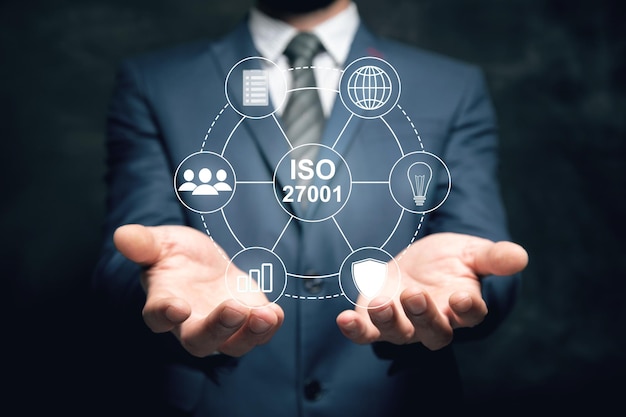What is the difference between ISO 27001 2013 and ISO 27701 2019?

The main difference between ISO 27001:2013 and ISO 27701:2019 lies in their scope and focus:
-
ISO 27001:2013: This standard is focused on information security management systems (ISMS). It provides a framework for establishing, implementing, maintaining, and continually improving an organization's information security controls. ISO 27001:2013 outlines the requirements for identifying and managing risks to the confidentiality, integrity, and availability of information within an organization.
-
ISO 27701:2019: This standard is an extension of ISO 27001:2013 and specifically addresses privacy information management systems (PIMS). It provides guidelines and requirements for implementing controls and processes to protect personally identifiable information (PII) and comply with privacy regulations. ISO 27701:2019 helps organizations integrate privacy practices into their existing ISMS and enhance their data protection capabilities.
In summary, while ISO 27001:2013 focuses on information security management, ISO 27701:2019 extends this framework to incorporate privacy information management, emphasizing the protection of personally identifiable information.
Purpose and Scope of ISO 27001 2013 and ISO 27701 2019? :
-
ISO 27001:2013: The primary purpose of ISO 27001:2013 is to establish a systematic approach to managing sensitive information within an organization. It focuses on the protection of confidentiality, integrity, and availability of information assets.
-
ISO 27701:2019: In addition to the objectives of ISO 27001:2013, ISO 27701:2019 specifically addresses privacy management. It aims to help organizations establish and maintain effective privacy controls and manage risks related to the processing of personally identifiable information (PII).
-
Privacy Considerations:
-
ISO 27001:2013: While ISO 27001:2013 acknowledges the importance of privacy, it does not provide detailed guidelines on managing PII or complying with privacy regulations.
-
ISO 27701:2019: This standard builds upon ISO 27001:2013 by providing specific requirements and guidance for implementing a Privacy Information Management System (PIMS). It helps organizations align their privacy practices with widely recognized privacy principles and regulatory frameworks, such as the General Data Protection Regulation (GDPR).
-
-
Control Objectives:
-
ISO 27001:2013: The controls outlined in ISO 27001:2013 are primarily focused on information security risks and cover a broad range of domains, including asset management, access control, cryptography, physical security, incident management, and more.
-
ISO 27701:2019: ISO 27701:2019 introduces additional controls and requirements related to privacy management. It addresses aspects such as consent and choice, purpose limitation, data minimization, individual rights, breach notification, and other privacy-specific considerations.
-
-
Certification:
-
ISO 27001:2013: Organizations can undergo an independent audit and certification process to demonstrate their compliance with ISO 27001:2013. This certification focuses on the effectiveness of the organization's ISMS.
-
ISO 27701:2019: ISO 27701:2019 does not provide a standalone certification but rather serves as an extension to ISO 27001:2013. Organizations can seek certification for ISO 27001:2013 with an extension for ISO 27701:2019, demonstrating their adherence to privacy management practices.
-
It's important to note that ISO 27701:2019 is designed to work in conjunction with ISO 27001:2013. Organizations that already have an established ISMS based on ISO 27001 can use ISO 27701 to enhance their privacy management capabilities and achieve a more comprehensive approach to information security and privacy.